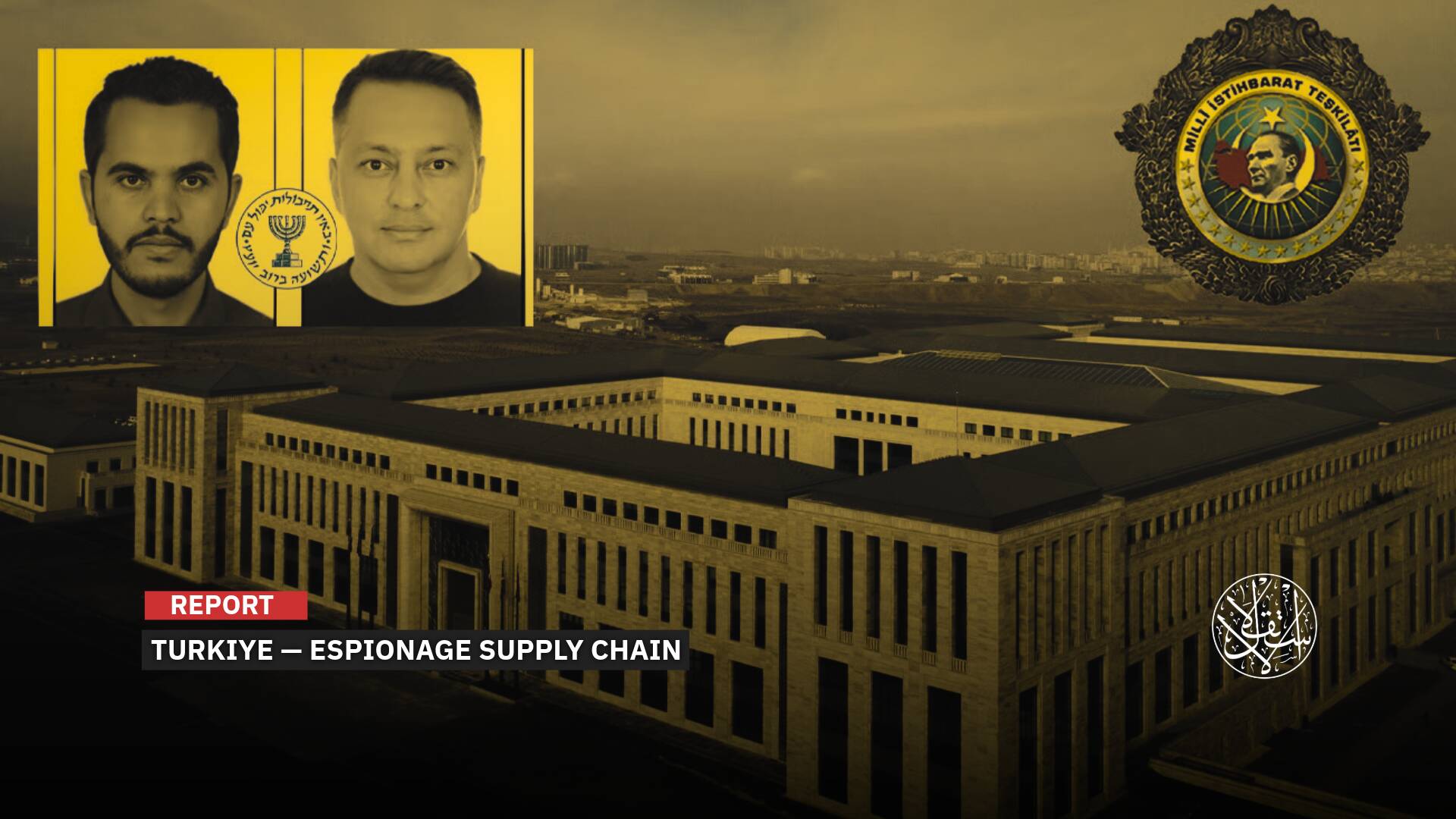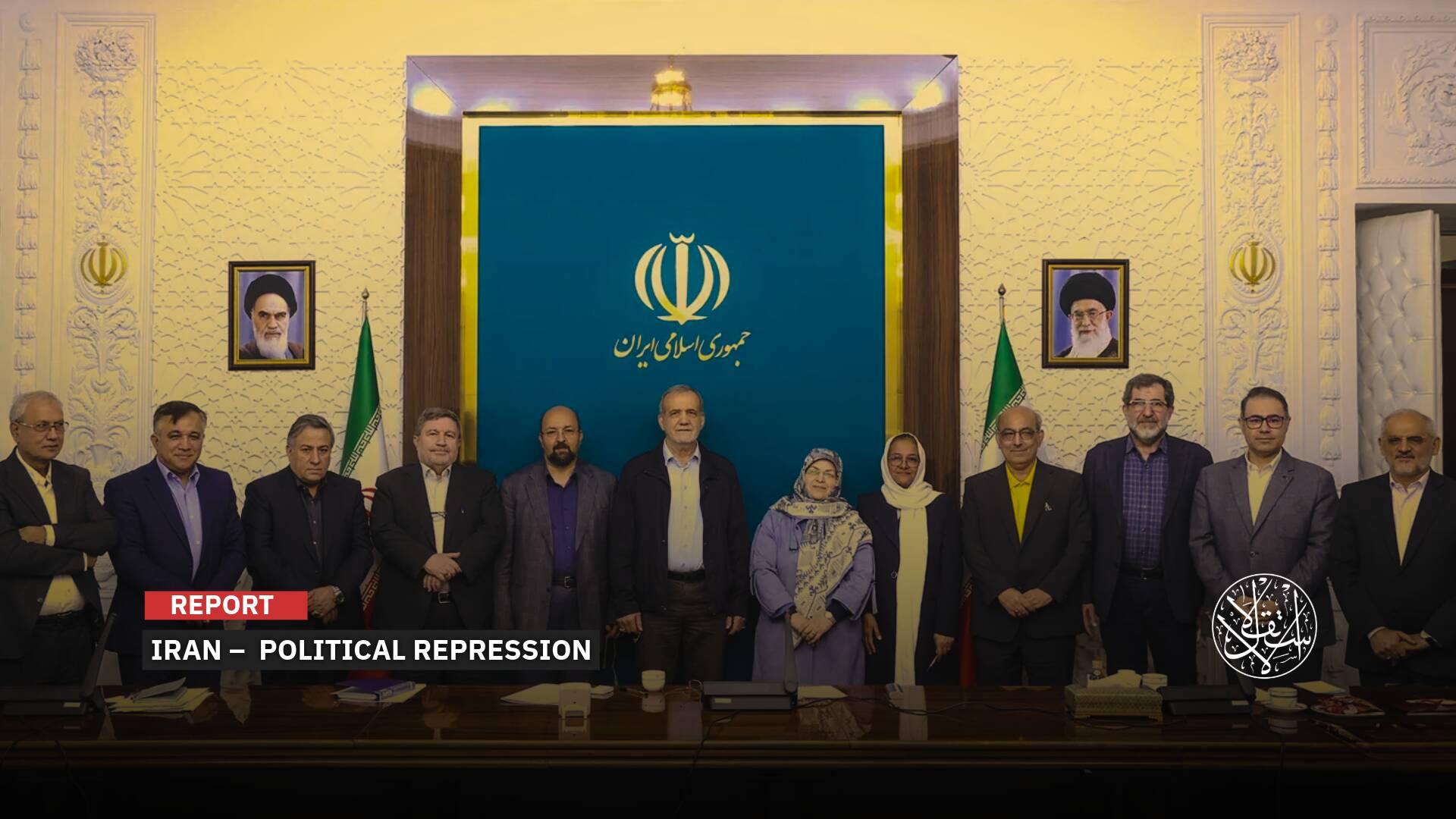Economic Coercion: Will the Biden Administration Succeed in Limiting U.S. Funding for Chinese Technology?
.png)
The White House recently announced that the U.S. administration has issued an executive order imposing restrictions on some U.S. investments in sensitive sectors that threaten national security, in a move that Beijing denounced, hinting that countermeasures would be taken in response to being targeted by this decision.
The New York Times quoted informed people as saying that this measure will be one of the important steps taken by the United States in its economic conflict with China and will pave the way for imposing more restrictions on investments between the two countries in the coming years.
Analysts ruled out that Beijing would respond to the U.S. decision to ban U.S. companies from investing in sensitive technologies in China, pointing to its limited capabilities and current economic problems in implementing a new wave of retaliatory measures.
It is pointed out that the Biden administration had recently sought to calm relations with China, dispatching Secretary of State Antony Blinken, Treasury Secretary Janet Yellen, and other high-ranking officials to Beijing to speak with their Chinese counterparts.
But the Biden administration, meanwhile, has continued to press for de-risking critical supply chains by developing suppliers outside of China and has steadily increased its restrictions on the sale of some technologies to China.
Sensitive Investments
On August 9, 2023, U.S. President Joe Biden signed an executive order banning some new U.S. investments in sensitive advanced tech in China, which may seek to develop technologies and products important for military, intelligence, espionage, and surveillance capabilities.
It is expected that the U.S. administration will give companies and institutions the opportunity to express their observations on the new rules before finalizing them in the coming months, according to what was published by Agence France-Presse.
In a letter to congressional leaders informing them of the executive order, Biden said that the U.S. commitment to open investment is a pillar of our economic policies and brings important benefits to the United States.
He added, “Some U.S. investments may accelerate and increase the success of developing sensitive technologies and products in countries that manufacture them, with the aim of confronting the capabilities of the U.S. and its allies.”
A senior U.S. government official told AFP, on condition of anonymity, that the foreign investment program will fill a critical gap in the U.S. national security toolkit.
He added, “What we are talking about is a narrow and deliberate approach as we seek to stop the bleeding of the transfer of U.S. dollars and expertise to China and prevent it from obtaining the most advanced technologies and using them to promote military modernization, and preventing it from undermining U.S. national security.”
The new rules require U.S. companies and individuals to report to the administration certain dealings with Chinese entities involved in less advanced semiconductors and activities related to certain types of artificial intelligence.
The executive order also gives the U.S. Treasury Department the authority to ban or impose restrictions on U.S. investments in Chinese entities in 3 sectors: semiconductors and microelectronics, quantum information technologies, and specific artificial intelligence systems.
It is noteworthy that the new U.S. measure faced sharp criticism from Republicans and others in Congress, who said it took too long and did not go far enough to limit U.S. funding for Chinese technology.
Last July, the China Committee of the U.S. House of Representatives sent letters to 4 U.S. venture capital firms expressing serious concerns about their investments in Chinese companies in areas including artificial intelligence and semiconductors.
Biden administration officials have also, in recent months, spoken with some allies to shed more light on the measure and encourage other governments to impose similar restrictions, including during G7 meetings in Japan last May.

Tech Bullying
In China’s initial reaction, Beijing, the world’s second-largest economy, announced on August 10 its opposition to the new U.S. restrictions and made formal representations to the U.S. side.
The Chinese news agency Xinhua quoted a spokesman for the Chinese Ministry of Foreign Affairs as saying that his country rejects the politicization of trade and technology issues and its use as a weapon.
The ministry criticized the U.S. moves as blatant economic coercion and U.S. tech bullying, stressing that Beijing will act to protect its rights.
The Chinese spokesman refused to justify Washington’s decision by “national security concerns,” saying that justification is just a facade.
He considered that the real goal of this step is to deprive China of its right to development and to selfishly seek to achieve American supremacy at the expense of others, adding that it is also tantamount to canceling the concept of globalization and a step towards the gradual exclusion of China.
In a separate statement, a spokesperson for China’s Ministry of Commerce announced that new U.S. measures to restrict investment in Chinese technology severely undermine the security of global manufacturing and supply chains.
He added, “The decree seriously deviates from the principles of market economy and fair competition that the U.S. has long promoted, affects the decisions of normal business activities, and harms the international trading system.”

U.S. Messages
Bloomberg considered that the new U.S. decision sends messages to China that the Biden administration is determined to face any dangers that the Chinese technological sector may pose, while at the same time seeking to calm relations with Beijing.
The agency said that the executive order, which took more than a year to prepare, is one of the other axes in the efforts of the Biden administration to limit China to obtain American technology and financing, to stimulate its own innovations in areas that may pose a threat to U.S. national security.
“At the same time, Biden is determined to improve relations with Beijing, and he finally sought to confirm that the executive will be narrow, and should not harm the relationships,” it added.
The new executive order coincides with renewed efforts by the Biden administration to re-communicate with Beijing and to stop a vortex that lasted months of the deterioration of bilateral relations.
It comes shortly after a visit by U.S. Secretary of State Antony Blinken to China with the aim of stabilizing the relations, which Beijing described as at its lowest level since the establishment of official relations in 1979.
Analysts have reduced China’s ability to carry out its threats, due to its economic problems. The data issued last week showed that the Chinese economy may be drowned in a deflationary cycle, with the decrease in consumer prices in July for the first time since 2021.
This is added to other signs of economic distress, including low exports, and high unemployment rates between youth and prolonged real estate stagnation.

Economic Confrontation
On the repercussions of the new U.S. measure, the Wall Street Journal quoted analysts as saying that China is fighting the deterioration of the macroeconomic economy and low investor confidence, making it less inclined to escalate the economic confrontation with the U.S.
The newspaper stated that the tech companies in the U.S. do not depend on Beijing’s investments, such as its Chinese-based Chinese counterparts.
Politically, Beijing is also seeking to ease tensions with Washington, but analysts and businessmen consider external investment procedures not sufficient to change accounts in tense bilateral relationships, which Washington and Beijing are trying to improve.
China has known that such procedures have been coming for a long time, and some analysts indicate that the new rules are less strict and more targeted than many people feared, at least in their current form.
The newspaper suggested that Beijing take revenge in other areas, such as imposing more restrictions on exporting the main materials that China has great influence and control over, such as rare soils or certain minerals.
Last July, China imposed restrictions on the export of Gallium and Germanium, which the U.S. and experts said are essential to the production of semiconductors, missile systems, and solar cells.
The experts then considered Beijing’s move in response to the U.S. export restrictions, which aim to reduce the technology industries in Beijing.
Governments and experts monitor whether the U.S. and China would legislate in a new wave of mutual measures, according to the Wall Street Journal, which said Beijing had previously responded to some American measures in a more limited way.
A year ago, when former House Speaker Nancy Pelosi Taiwan visited, China responded days after the implementation of large-scale military exercises, and also stopped cooperation with Washington on cases, including the climate, and froze some military contacts.
After both countries, in 2018 and 2019, imposed customs duties on each other, Beijing faced difficulty in retaliation in proportion to Washington’s measures because it imports less products than the U.S.

Despite the executive order aimed at banning new investment, U.S. investment in the Chinese tech sector has already plunged due to other restrictive measures taken by the U.S.
In 2022, total US-based venture-capital investment in China fell sharply to $9.7 billion from $32.9 billion in 2021, according to Reuters.
So far this year, total venture-capital investment has reached only $1.2 billion.
Reuters reported that there are more than 70,000 US companies that are currently doing business in China.











